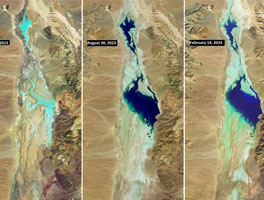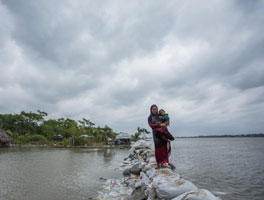 |
Dear readers,
Welcome to the Climate Weekly newsletter by the Centre for Science and Environment’s Climate Change programme and Down to Earth.
Agriculture is already the most vulnerable sector due to climate change. Add to that a fractured agricultural system, one which has led farmers in Europe and India to take to the streets. A common thread that runs through these protests happening in different corners of the world is the increased cost of agricultural production in a climate-risked world, CSE’s Director-General Sunita Narain explains.
In Europe, the backlash was sparked by the climate regulation, mandating farms to cut their usage of fertilisers and pesticides, while doubling organic production and leaving more land for non-agricultural use for biodiversity conservation. Farmers at home in India, are protesting in the country’s capital for a higher minimum support price for their produce. Globally, farming has become more intensive in terms of productivity and inputs. Costs get further escalated due to environmental conditions, especially extreme weather events and pest attacks. However, farmers in a developing nation such as India lack the kind of subsidies that the farmers in rich and developed Europe have. Environmental costs of reducing greenhouse gas emissions from the agricultural sector have to be weighed against money for farmers, affordable consumer food prices, and food security. Regenerative farming coupled with food procurement policies can provide a solution to utilise food for nutritional needs instead of directing it towards feeding livestock or letting it go to waste.
Elsewhere, Shagun Kapil of DTE discusses the benefits of developing an index for evaluating climate-smart agriculture in India. And recent scientific research reveals that short-term events like heat waves in Greenland and storms in Antarctica can trigger a much longer-term effect on the world’s largest ice sheets in a warming climate.
Apply for CSE’s global online certificate course on ‘Demystifying Environmental and Sustainability Data for Effective Communication in the 21st Century’ to be held from March 6-20.
|
|
 |
| |
 |
|
| |
 |
 |
| |
By - Fizza Zaidi
Climate Change, CSE
|
| |
|
 |
|
|
| |
 |
|
| |
| EXTREME WEATHER TRACKER |
| |
Driest place in North America has been home to a lake for 6 months, show NASA images, 21 February 2024
|
 |
 |
|
|
| |
 |
|
| |
 |
 |
Bangladesh experienced 185 extreme weather events between 2000 and 2019: ICCCAD report, 19 February 2024
|
|
|
| |
 |
|
| |
|
|
| |
|
|
| |
|
|
| |
 |
|
| |
|
|
| |
 |
|
| |
CLIMATE NEWS | SCIENCE| IMPACTS| POLITICS |
|
| |
 |
|
| |
|
|
| |
 |
|
| |
|
|
| |
 |
|
| |
|
|
| |
 |
|
| |
|
|
| |
 |
|
| |
|
|
| |
 |
|
| |
|
|
| |
 |
|
| |
|
|
| |
 |
|
| |
| Anil Agarwal Dialogue |
| |
|
|

|
| |
|
|
| Online Training |
|
Book |
| |
|
|
|
|
|
|
|
|
| |
|
|